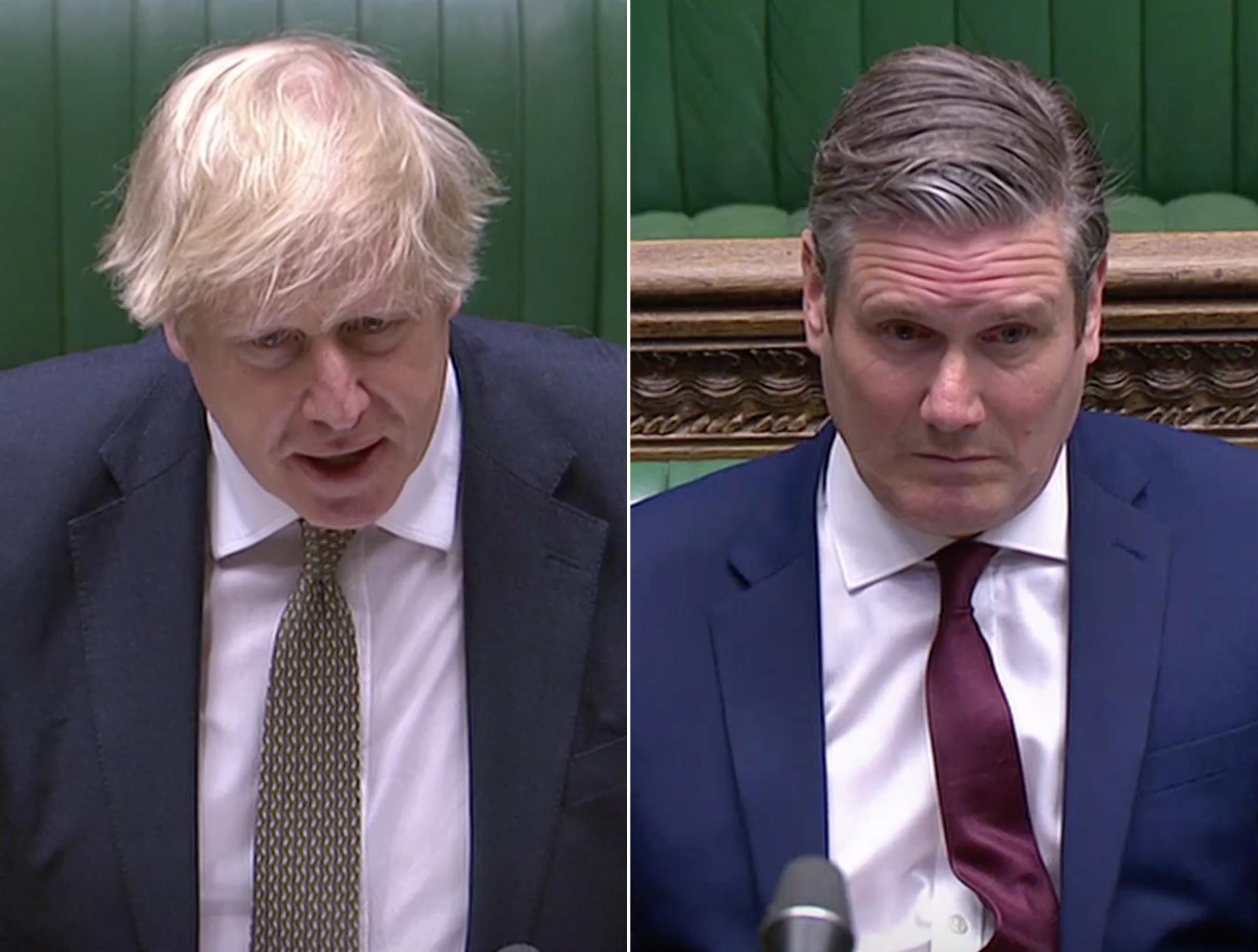A week may be a long time in politics – but we have been given a glimpse of the next four years
Boris Johnson vs Keir Starmer is set to be a marathon battle, and their first clash at PMQs offered a clear taste of what’s to come, writes Andrew Woodcock


It’s a mark of the shadow which coronavirus has cast over politics that the first Commons clash between a new Labour leader and a newish prime minister appeared almost a sideshow this week.
In normal times, Boris Johnson vs Keir Starmer at prime minister’s questions would have been treated as a generation-defining moment, pored over intensively for signs of the nature of the titanic battle due to play out over the next five or 10 years.
The two leaders’ styles, the slogans and soundbites they unveiled, the enthusiasm with which their packed backbenches welcomed them to the despatch box – all would be dissected for indications on how the struggle to come would shape up.
Leaders know that their first PMQs encounter can set the tone for their time in office, and most put enormous effort into making an impact from the word go.
David Cameron’s inspired “He was the future once” taunt at Tony Blair in 2005 pulled the rug from under the Labour PM in a way that his predecessors had never managed, framing the new Tory leader as confident, dynamic and modern – while at the same time betraying the flaws of complacency and self-satisfaction that came to light during his premiership.
Jeremy Corbyn took a different tack in 2015, spreading confusion among traditionalists by reading out questions from constituents in an attempt to drag the weekly duel out of the Westminster bubble and into the real world, though all he got for his pains were jibes about his “tetchy geography teacher” style which he later struggled to shake off.
There was no such showpiece event this week, as a near-empty and silent Commons chamber witnessed a technical squabble about testing numbers, deliveries of protective equipment and international death rate comparisons.
The coronavirus crisis is frankly too important and too unprecedented for politics-as-usual to get much of a look-in.
But for those who were interested, there were clear signs of how the battle between the pair will be fought over the four years until the general election scheduled for 2 May 2024.
Reviews of Starmer’s performance all noted his “forensic” approach, as befits a former director of public prosecutions, and noted how his careful questioning led Johnson into saying he “bitterly regrets” the epidemic in care homes and admitting that it was lack of capacity rather than scientific advice which led the UK to stop its test-and-trace programme in March.
It’s worth noting that the last QC to hold the post of leader of the opposition, Michael Howard, was also praised for his “forensic” style but found that this was not necessarily an automatic route to electoral success.
But nonetheless, we can expect Starmer to stick to this strategy, methodically and precisely attempting to skewer Johnson’s notoriously scattergun promises and hold him to account for the consequences of decisions taken and dodged.
As the country hauls itself back onto its feet after coronavirus – and after the no-deal Brexit which Johnson appears to be lining up for the end of the year – it will be fascinating to see whether the public’s taste is for the optimistic feel-good merchant promising sunlit uplands ahead or the dogged inquisitor brutally laying out the facts about the dire situation Britain finds itself in.
In boom times, there seems little doubt that sunshine would win the day (as Cameron once said it would). But when the nation is licking its wounds and wondering what exactly went wrong, the prime minister may find that voters are not so tired of experts after all.
Incidentally, any pundits looking ahead to the next election would do well to remember that the Thursday just gone was once scheduled to be election day.
Had things gone differently after 2015 – had Britain voted Remain and a novel virus not emerged from a Chinese market – we might now be contemplating prime minister George Osborne looking ahead to his first full term in office following a smooth transition of power from his close ally David Cameron 12 months ago and an election in which Tories reaped the benefits of the 2017 end of austerity.
Or looking back further, had a different brother won the Labour leadership in 2010, we could be witnessing David Miliband settling in for his second term in Downing Street having won the ferocious battle for the middle ground of British politics with Cameron in 2015 and then seen the Tories drift off unelectably rightwards. Or witnessing David Miliband resign as leader after seeing the Labour Party torn apart between irreconcilable Blairite and Corbynite wings.
If a week is a long time in politics, the last five years was a lifetime and the next four years of Johnson/Starmer warfare may seem like an eternity.
Yours,
Andrew Woodcock
Political editor
Join our commenting forum
Join thought-provoking conversations, follow other Independent readers and see their replies
Comments